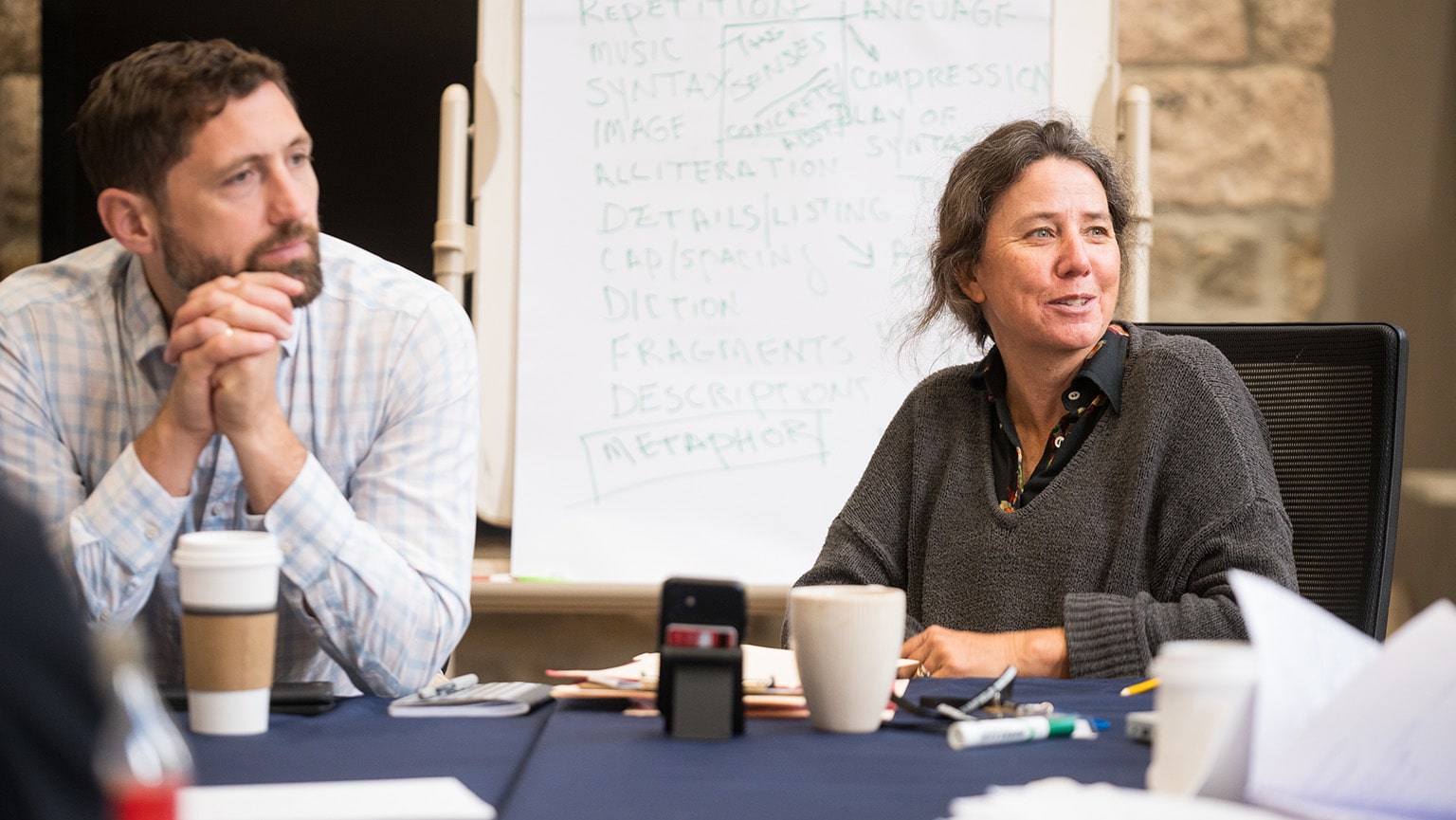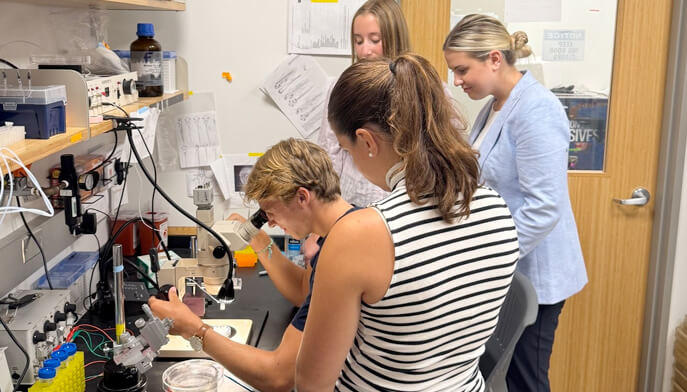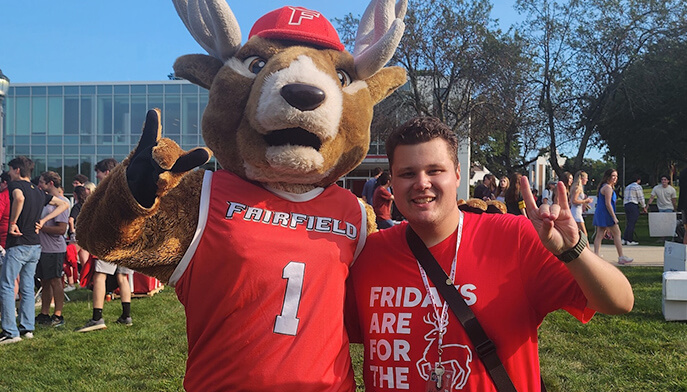Learn what to expect in an MFA. Explore program formats, residencies, mentors, and outcomes to help you choose an MFA in creative writing program.
For many writers, enrolling in a master of fine arts (MFA) in creative writing is a dream step toward developing their craft and building a professional future in literature. But with so many options available, choosing an MFA in creative writing program can feel overwhelming. Each MFA program has its own structure, focus, and community, and knowing what to expect can help you make a choice that aligns with your creative and career goals.
This guide walks you through five key factors to keep in mind as you explore earning a graduate degree in creative writing.
1. Program Structure: Elements and Concentrations
The foundation of any MFA degree is its curriculum. At the graduate level, students typically engage in a balance of coursework and independent writing designed to refine their creative process.
Common Program Elements
Most creative writing programs include:
- Writing workshops – Core classes where MFA students share work, provide feedback, and learn revision strategies.
- Seminars and literature courses – Deep dives into literary fiction, poetry, nonfiction, and other genres to broaden your understanding of craft.
- Independent projects – Time devoted to producing a manuscript, collection, or thesis that demonstrates growth as a writer.
Concentration Options
When choosing an MFA in creative writing program, consider whether you want to specialize. Many schools offer concentrations in fiction, nonfiction, poetry, playwriting, or even cross-genre studies. Exploring these options can help you decide if a program supports your creative ambitions. Concentration options at Fairfield University include editing and publishing, literary health and healing, social justice, and spiritual writing.
2. Residencies and Program Formats
Another factor in deciding what to expect in an MFA is the format. Not every writer is able to relocate for a full-residency program, which is why many schools now offer flexible alternatives.
Residency MFA Programs
A residency program requires you to live and study on campus. This immersive approach allows for daily engagement with peers, professors, and guest writers. You’ll experience seminars, workshops, and in-person events as part of your regular schedule.
Low Residency MFA in Creative Writing
A low-residency MFA in creative writing is designed for graduate students who want the rigor of a graduate program without uprooting their lives. Students gather for short, intensive residencies a few times a year while completing the rest of their coursework online. Fairfield University, for example, offers a low-residency MFA in creative writing that blends flexibility with robust academic and artistic mentorship.
Online and Hybrid Models
Some programs are fully online, while others combine digital coursework with occasional campus visits. These formats provide accessibility while still fostering connections among MFA students and faculty members.
3. Mentorship and Faculty Support
An often-overlooked element of what to expect with an MFA program is the mentorship you’ll receive. The quality of faculty members can make a significant difference in your experience.
Faculty Mentoring
In an MFA program, faculty typically serve as both teachers and mentors. They guide your progress through one-on-one meetings, critiques of your work, and career advice. A strong mentoring relationship can help you move from graduate student to MFA graduate ready for the publishing world.
Peer Feedback
Equally important are the insights of your fellow MFA students. Workshops rely heavily on peer critiques, allowing you to see your writing through different perspectives. This kind of dialogue sharpens your editorial eye and builds confidence in presenting your own work.
Visiting Writers
Many programs invite visiting authors to lead creative writing workshops or give readings. These interactions expose you to diverse voices and connect you to the broader literary landscape. Fairfield has hosted numerous visiting authors and poets who have won the Pulitzer Prize, been selected for Oprah’s Book Club, and received the National Endowment for the Arts, among other accolades.
4. Community and Networking Opportunities
The connections you build during your time as an MFA student can be just as valuable as the coursework itself. A strong writing community fosters collaboration, encouragement, and accountability.
Alumni and Industry Connections
Top programs often have active alumni networks. These MFA graduates can serve as mentors, collaborators, or professional contacts, helping you navigate publishing, editing, or teaching opportunities.
Building Lifelong Relationships
During a residency MFA program, you’ll spend concentrated time with other graduate students, forging friendships and professional partnerships that extend well beyond graduation. Whether through online forums, workshops, or in-person events, these relationships become the foundation of your long-term writing life.
5. Outcomes and Long-Term Rewards
Ultimately, when choosing an MFA in creative writing program, it’s important to think beyond graduation. An MFA degree is more than a credential—it’s an investment in your future as a writer.
Career Preparation
Many MFA graduates go on to teach at the university level, write professionally, or work in publishing. Because the MFA in creative writing is considered a graduate degree at the highest level in this field, it opens doors to academic positions and professional roles. A few other career paths you could follow include museum interpreter, creative director, digital content creator, marketing manager, public relations specialist, or librarian.
Creative Achievement
On the personal side, an MFA provides the space and discipline to finish a substantial body of work—whether a novel, poetry collection, or series of essays. By the end of your graduate program, you’ll have not only improved your craft but also produced a portfolio that reflects your growth.
Lifelong Community
The relationships you build with peers, mentors, and alumni will continue to support you long after graduation, offering ongoing opportunities to share, publish, and collaborate.
Making the Right Choice
Deciding on the right program comes down to understanding what to expect in an MFA. From the program structure and available concentrations to the format of a residency program or low-residency MFA in creative writing, each factor shapes your experience. Strong faculty members, a supportive writing community, and long-term outcomes all play a role in determining the program that best aligns with your goals.
No matter which path you choose, pursuing a master of fine arts in creative writing is a chance to dedicate yourself fully to your craft. For writers ready to grow, connect, and create, the journey of earning an MFA can be as transformative as the stories you’ll one day share with the world.




